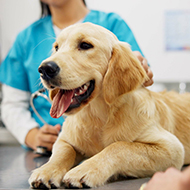Metropolitan Police reduces wildlife crime unit
Born Free says that investment is vital for tackling wildlife crime.
Born Free has criticised the Metropolitan Police, after it was revealed it would be reducing the role of its Central Wildlife Crime Unit.
The wildlife conservation charity has appealed to the Metropolitan Police commissioner and the mayor of London, as detectives previously investigating wildlife crime are redeployed to cases of local crime.
Wildlife crime can include illegal hunting, animal cruelty and collecting or trading protected species. It covers crime which causes pain and suffering for animals, and may push some species closer to extinction.
These crimes can also be related to other serious crimes, including firearms offences and organised crime.
The Central Wildlife Crime Unit, formed in 2004, has worked with the National Wildlife Crime Unit and the Wildlife Trafficking team at UK Border Force. Members of the public are currently encouraged to contact the force if they believe a crime against wildlife has been committed.
Born Free says that, unchecked, wildlife crime can damage wildlife conservation and cause extreme animal suffering. It says that investment in specialised enforcement is vital to tackling these crimes.
The charity believes that the Central Wildlife Crime Unit has been an important part in tackling wildlife crime, and the reductions made to its services will make it easier for criminals to commit offences.
Dr Mark Jones, Born Free’s head of policy, said: “With the world’s wildlife in crisis, and with wildlife crime increasing across the globe, including here in the UK, the news that the Metropolitan Police plans to disband its highly effective Wildlife Crime Unit is very disturbing.”
He added: “We urge the Met Police commissioner and the mayor of London to think again.”
The Metropolitan Police were contacted for comment.
Image © Shutterstock



 The CMA has invited comments on a draft survey invitation letter, as it continues its investigation into consumer experience.
The CMA has invited comments on a draft survey invitation letter, as it continues its investigation into consumer experience.